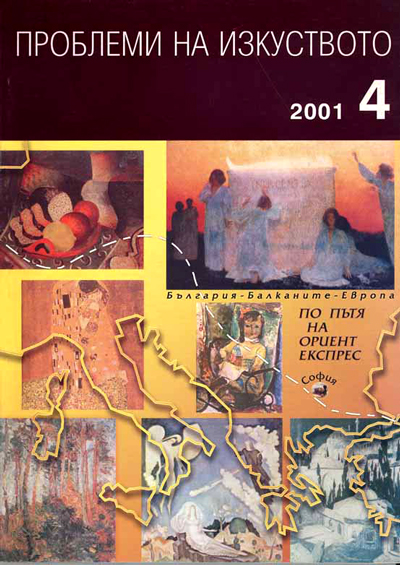Гърция в края на дългия деветнадесети век
Greece at the End of a Long Nineteenth Century
Author(s): Sanya VelkovaSubject(s): Anthropology, Social Sciences, Cultural Anthropology / Ethnology, Culture and social structure
Published by: Институт за изследване на изкуствата, Българска академия на науките
Summary/Abstract: The article presents a selection of trends as having imposed themselves on the political, economical and spiritual reality in Greece from the end of the 1880s up to the 1920s. The choice of that particular period was motivated by the fact that since the end of the 1980s the clash between ideas of local nature and West-European influences outlines the cultural setting of modem Greece as reaching for European accomplishments. The thesis is backed by particular examples from the development of literature, as well as by general conclusions on the nature of culture. The specific matter of the search for national identity is focused on as a special effort of Greek society put to work at the time. The brief presentation hereby accentuates on a detailed study of urbanisation and architectural development of Thessaloniki as an example for the “going out” of the 19th century establishment norms and a strife at gaining a “Greek physiognomy” for the recently cosmopolitan city though in the setting of clearly manifested pro-European concepts. The treatment of the presentation hereby suggests a message of some reasons why the Greek Nineteenth century ended in 1922...
Journal: Проблеми на изкуството
- Issue Year: 2001
- Issue No: 4
- Page Range: 8-13
- Page Count: 6
- Language: Bulgarian
- Content File-PDF

